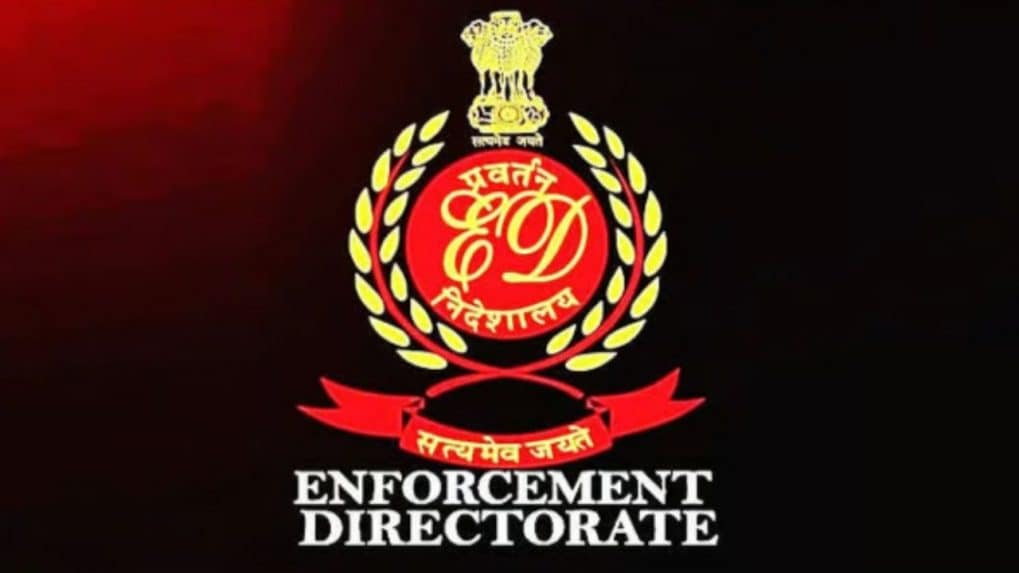ED targets digital Ad ecosystem: Google, Meta accused of aiding illegal betting sites
This development is part of a broader investigation in which multiple influencers, celebrities, and marketing platforms have come under scrutiny for endorsing or distributing promotional content for betting brands.
ADVERTISEMENT
In a major escalation of its crackdown on online betting platforms, the Enforcement Directorate (ED) has issued summons to tech giants Google and Meta, seeking their appearance on July 21. The two companies are being probed for allegedly facilitating the promotion of illegal betting apps, marking a new front in the ongoing investigation into financial crimes tied to digital gambling operations.
According to ED sources, both companies are suspected of providing advertising access and visibility to websites and applications currently under investigation for serious offences, including money laundering and hawala transactions. The probe suggests that by hosting or promoting these platforms, Google and Meta may have played a role—direct or indirect—in amplifying the reach of apps that have operated under the guise of skill-based games.
Tech Giants Face Tough Questions
The ED’s notice to Google and Meta underscores growing regulatory concerns over how global digital platforms handle advertising content, especially from sectors that are banned or highly regulated in India. Investigators are focusing on advertising inventory made available to suspected betting platforms and whether either company made sufficient efforts to comply with Indian laws restricting such promotions.
This development is part of a broader investigation in which multiple influencers, celebrities, and marketing platforms have come under scrutiny for endorsing or distributing promotional content for betting brands. The most prominent among them is Parimatch, an offshore betting company that has aggressively marketed itself in India despite the legal ambiguities around online betting.
Read More: Quick Commerce or Quick cash? Zepto’s promotion of illegal betting firm Parimatch
Earlier this year, Zepto, a quick-commerce startup, was found to be distributing promotional flyers for Parimatch along with grocery orders, essentially delivering gambling ads to households. This move triggered criticism from consumer watchdogs and regulatory authorities for violating advertising norms.
Despite repeated advisories, some companies continue to promote offshore betting platforms in India, risking not only legal consequences but also public backlash, especially as these platforms are often linked to youth-targeted marketing.
Regulatory Clampdown Tightens
The ED's notices come amid heightened regulatory efforts from various arms of the government. The Ministry of Information and Broadcasting, Advertising Standards Council of India (ASCI), and the Central Consumer Protection Authority (CCPA) have issued multiple advisories warning platforms and influencers against promoting gambling services.
Last week, the ED registered a case against 29 individuals, including prominent actors, television hosts, and social media influencers, for allegedly promoting these illegal betting applications. Celebrities like Prakash Raj, Rana Daggubati, and Vijay Deverakonda are among those who have been named in the Enforcement Case Information Report (ECIR), with allegations that they received substantial financial compensation for endorsing these apps.
Among the cases, the Mahadev Betting App stands out as a high-profile financial scandal, with the total scam estimated to exceed Rs 6,000 crore. Several Bollywood celebrities have been questioned in connection with the case, which has also seen allegations of political kickbacks, including ED’s claim that former Chhattisgarh Chief Minister Bhupesh Baghel received over Rs 500 crore from the app's promoters.
In March 2024, the CCPA issued a strict warning under the Consumer Protection Act, 2019, reiterating that any form of advertisement or endorsement of betting or gambling is illegal. The Guidelines for Prevention of Misleading Advertisements and Endorsements (2022) further prohibit ads for products or services that are unlawful under existing legislation.
IT and Electronics Minister Ashwini Vaishnaw, addressing the Lok Sabha, confirmed that 1,410 illegal gaming websites have been blocked in 2024 alone. He emphasized that while the Centre is taking proactive measures, state governments also need to formulate and enforce appropriate legislation to tackle the growing menace of online gambling.
Experts cite a growing concern over the socio-economic fallout of unchecked digital gambling. Authorities argue that aggressive advertising—especially on platforms with massive reach like Google and Meta—exposes young users to potentially addictive and financially ruinous services disguised as entertainment.
With the upcoming questioning of Google and Meta, the ED appears poised to test the accountability of tech platforms that serve as conduits for online advertising in India. The outcome could significantly impact how digital ad platforms vet their clients, especially in sectors prone to misuse.
If the ED establishes complicity or negligence, the case could serve as a precedent for tighter regulation of ad-tech operations and may compel platforms to review their ad approval protocols, particularly for markets with sensitive legal frameworks like India.
Read More: Illegal betting apps now lure Indian users with pornographic content


